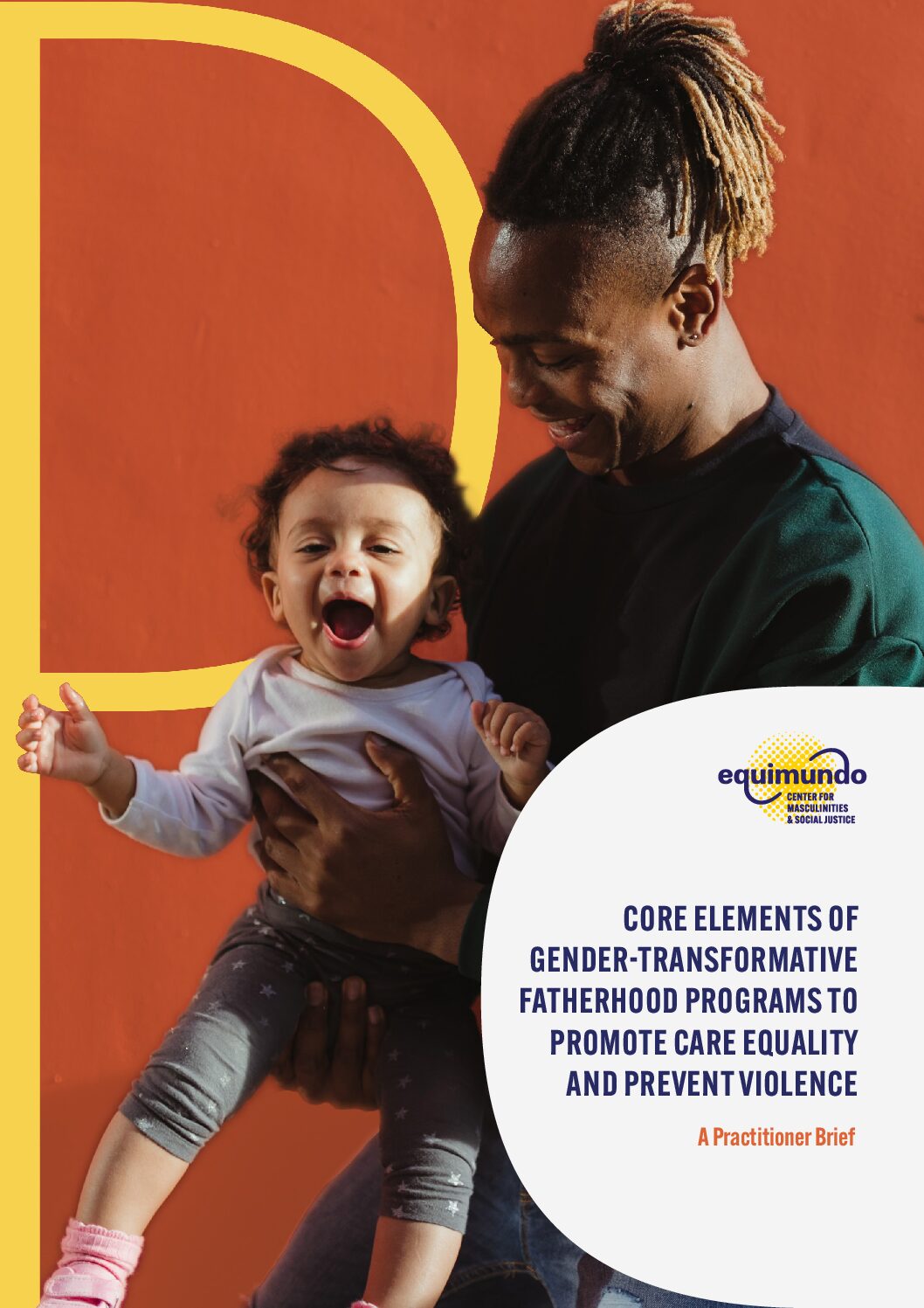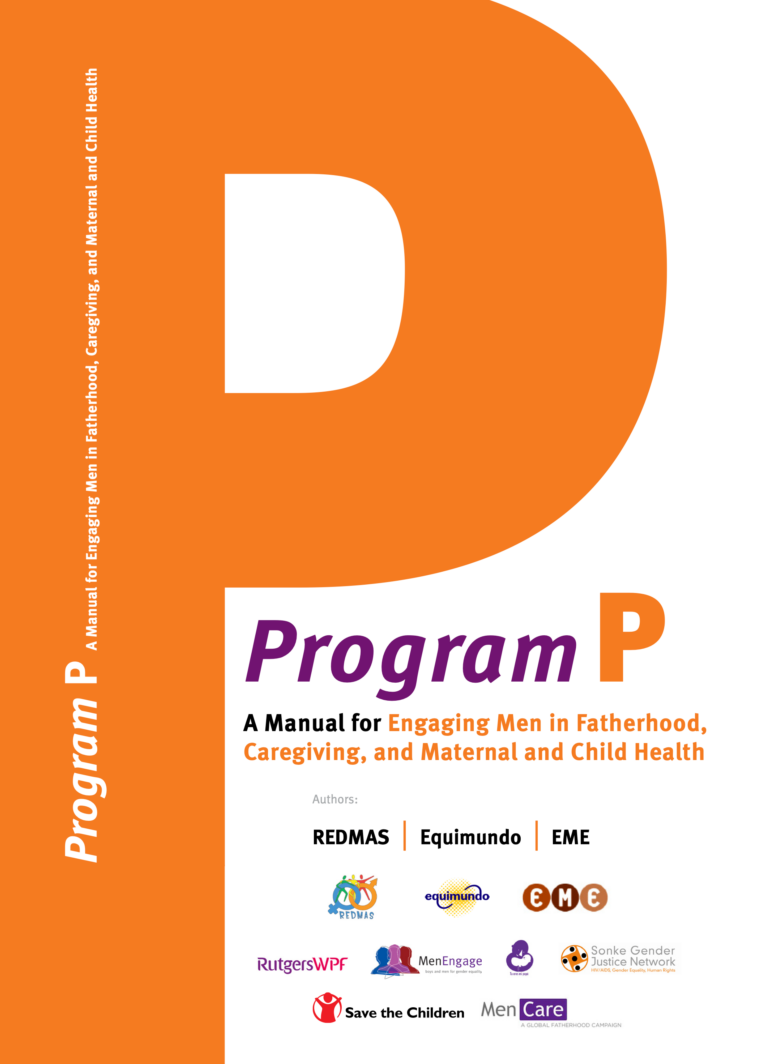 Parenting programs have been identified as a promising strategy to strengthen parenting skills; increase men’s participation in caregiving; improve the quality of family relationships, health, and well-being; and prevent violence against children. Yet, most parenting programs primarily reach mothers and female caregivers, but fathers and male caregivers also have the power to transform their children’s lives. Nurturing interactions with fathers can improve children’s emotional and cognitive development, and strengthening couple relationships and reducing violence between the parents can reduce children’s exposure to intimate partner violence.
Parenting programs have been identified as a promising strategy to strengthen parenting skills; increase men’s participation in caregiving; improve the quality of family relationships, health, and well-being; and prevent violence against children. Yet, most parenting programs primarily reach mothers and female caregivers, but fathers and male caregivers also have the power to transform their children’s lives. Nurturing interactions with fathers can improve children’s emotional and cognitive development, and strengthening couple relationships and reducing violence between the parents can reduce children’s exposure to intimate partner violence.Program P, a flagship Equimundo program, is a curriculum that provides concrete strategies and activities to engage men with their female partners in caring, equitable and nonviolent fatherhood from their partner’s pregnancies through their children’s early years. It has been adapted and implemented around the world, successfully showing reductions in violence and improvements in father involvement.
Equimundo wanted to understand what contributed to Program P’s success, and so conducted a mixed-methods review of Program P adaptations in more than a dozen countries. The review identified result is a set of core components that contributed to the program’s success, as well as common challenges and constraints, that can support practitioners interested in adapting, implementing, and evaluating gender-transformative parenting programs in other settings.
The comprehensive comparative review provides detailed information on those key components to support practitioners interested in adapting, implementing, and evaluating gender-transformative parenting programs in other settings. These are summarized below:
- CORE COMPONENT #1: Develop balanced and long-term partnerships with organizations that share common principles.
- CORE COMPONENT #2: Foster strong alliances with government, health, and other sectors to catalyze collective efforts and achieve policy-level changes.
- CORE COMPONENT #3: Commit to a contextualized, engaging, and experiential methodology that is based on social learning and centered on equitable couple relations and men’s caregiving.
- CORE COMPONENT #4: Plan adequate time and resources to recruit, train, and support local facilitators.
- CORE COMPONENT #5: Create an enabling environment to support and sustain change through engaging service providers, institutions, local researcher and practitioner networks, and community structures.
- CORE COMPONENT #6: Secure funding from flexible donors that will support long-term and quality partnerships.
Speaking of the review’s utility for practitioners, Clara Alemann, one of its authors, said,
We’ve systematized the existing evidence on Program P, as well as invaluable practice-based knowledge from our partners around the world to provide practical guidance to help practitioners effectively engage fathers and male caregivers through parenting programs. We want to engage men from a lens of compassion – acknowledging that many men don’t use violence and want to be better fathers and partners – but also a lens of accountability, recognizing the harms many men sustained by a patriarchal system cause and believing as well in the ability and willingness of men who don’t use violence to engage and call out violence that some men use. This review of programs that seek to explicitly promote father involvement while reducing both violence against children and women shows they can promote care equality and reduce both types of violence simultaneously.
Read the full practitioner brief and full comparative study here.

